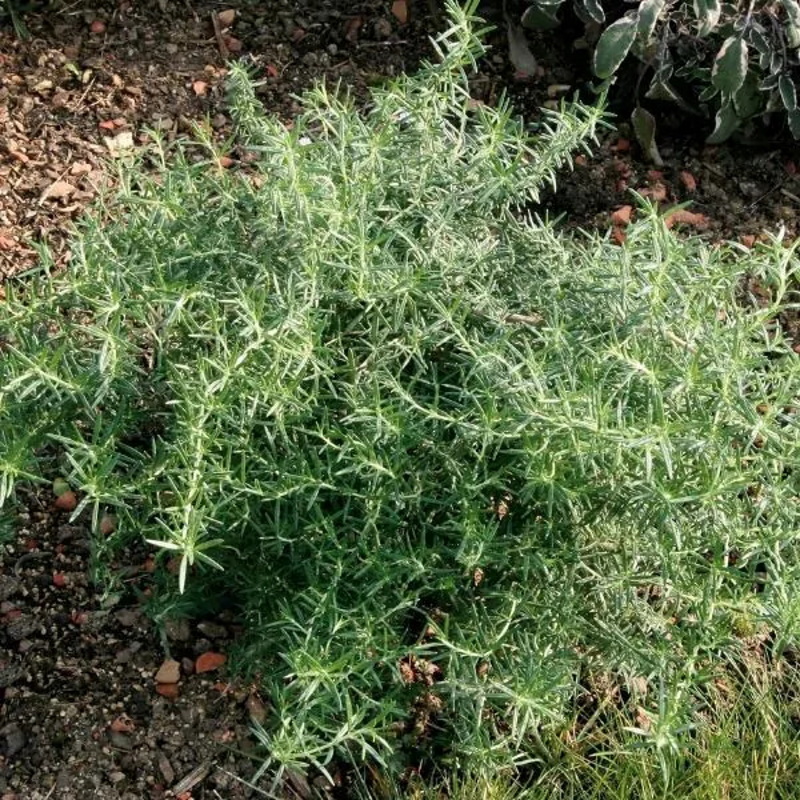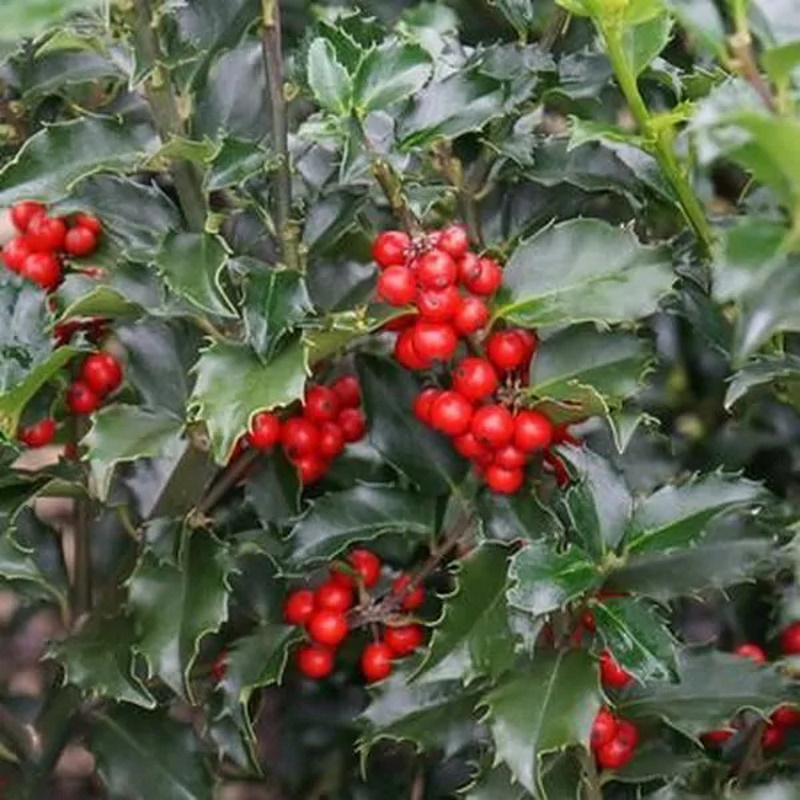Best snake-repellent plants – 15 plants to stop these unwanted visitors coming to your yard
Grow repellent plants to keep these reptiles at bay and create an anti-snake zone in your outside space
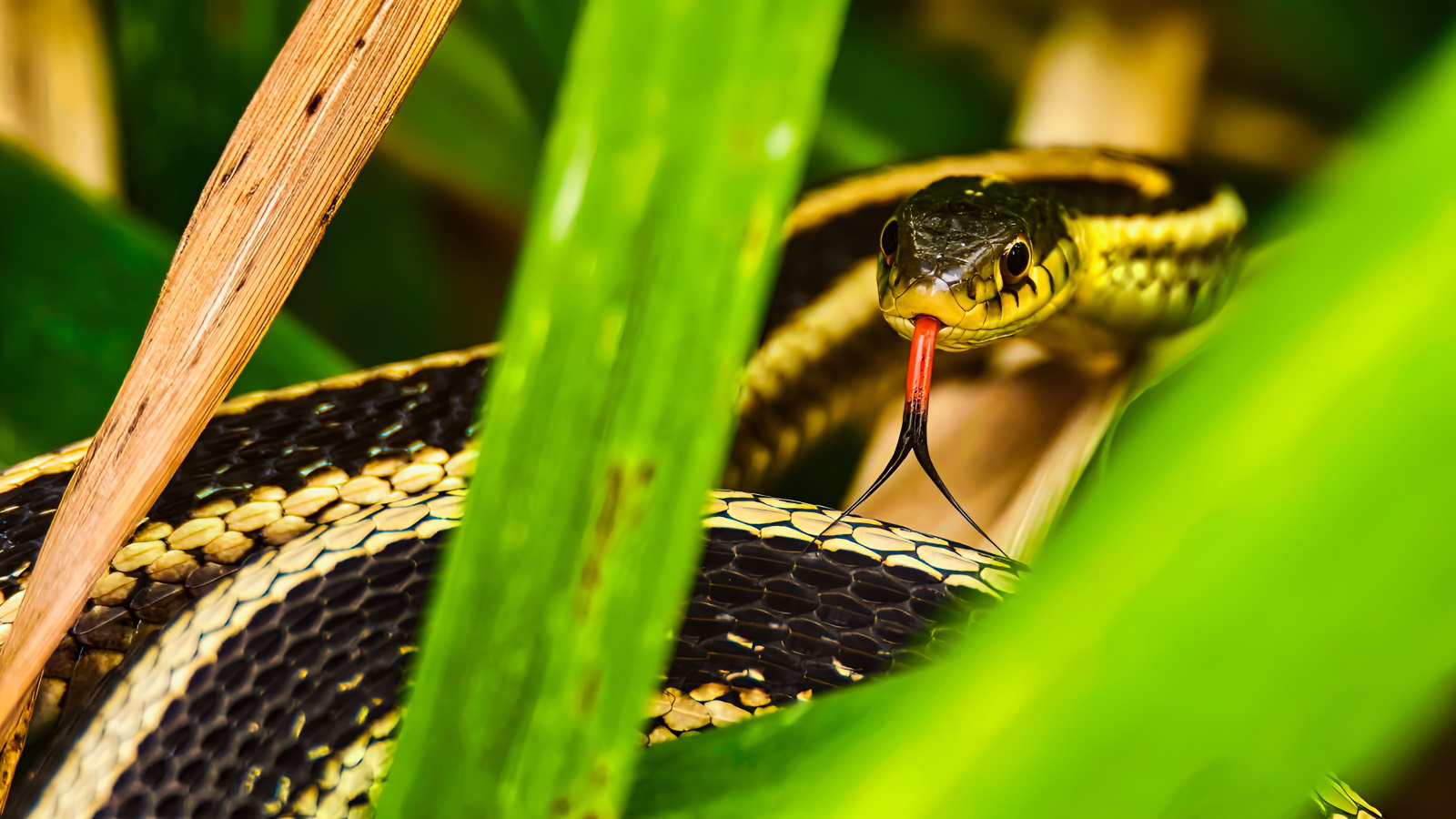

Tenielle Jordison
You should consider adding snake repellent plants to your yard if you live in an area where you can typically find these unwelcome reptiles. They love damp environments with dense foliage and are also commonly found in sunny rock gardens.
Although many snakes are not venomous or a threat to humans and animals, just having their presence so near to your home can be hugely unnerving, so it makes sense to deter them where possible. Like mosquito repellent plants, fly repellent plants and mouse repellent plants, planting snake repellent plants can be the most environmentally friendly ways to do keep these unwanted yard visitors away.
With a strong sense of smell – or at least their ability to gather molecules which they then run past their Jacobson’s organ – there are many natural scents snakes simply can’t stand, and many fragrant plants that will deter them. Discover the best snake-repellent plants in out expert list below.
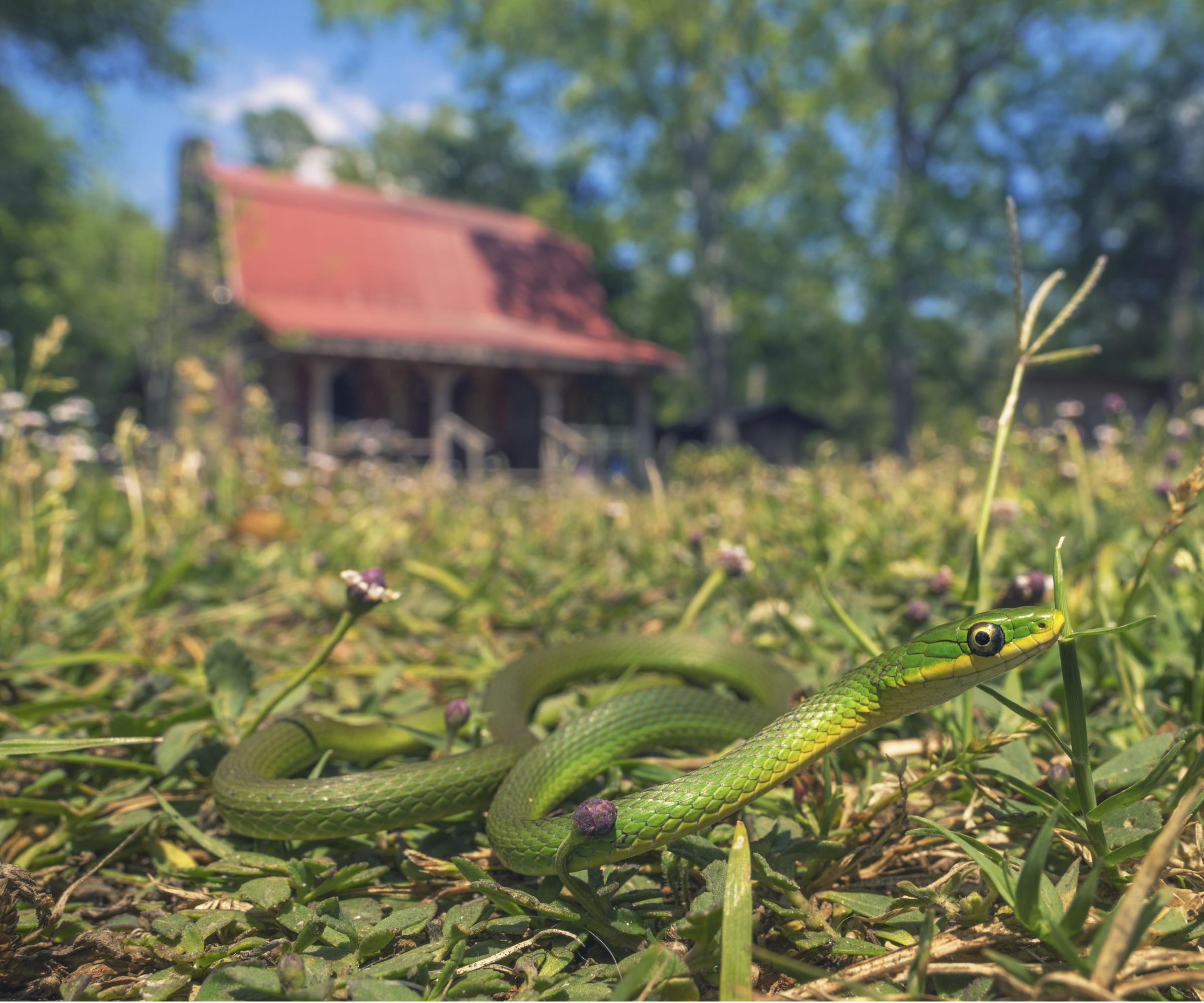
Best snake-repellent plants - a quick look:
There are plenty of plants that repel snakes. Snakes dislike strong and bitter scents, so you should use aromatic plants to repel them. You can also use spikey plants that are difficult for snakes to move through. These plants include:
- Marigolds
- Lavender
- Rosemary
- Alliums like onions, garlic and chives
- Lemongrass
- Cactus
- Mugwort
- Mother-in-laws tongue
- Holly
- Pink agapnathus
- Snakeroot
- Yellow alder
- Basil
- Eucalyptus
- Daffodils
15 snake repellent plants to protect your yard
From aromatic herbs and fragrant flowers to plants with prickly foliage, there are many species to grow that will keep snakes away and add interest to your yard. Discover our expert list of snake-repellent-plants that possess the power to keep your plot snake-free.
1. Marigolds
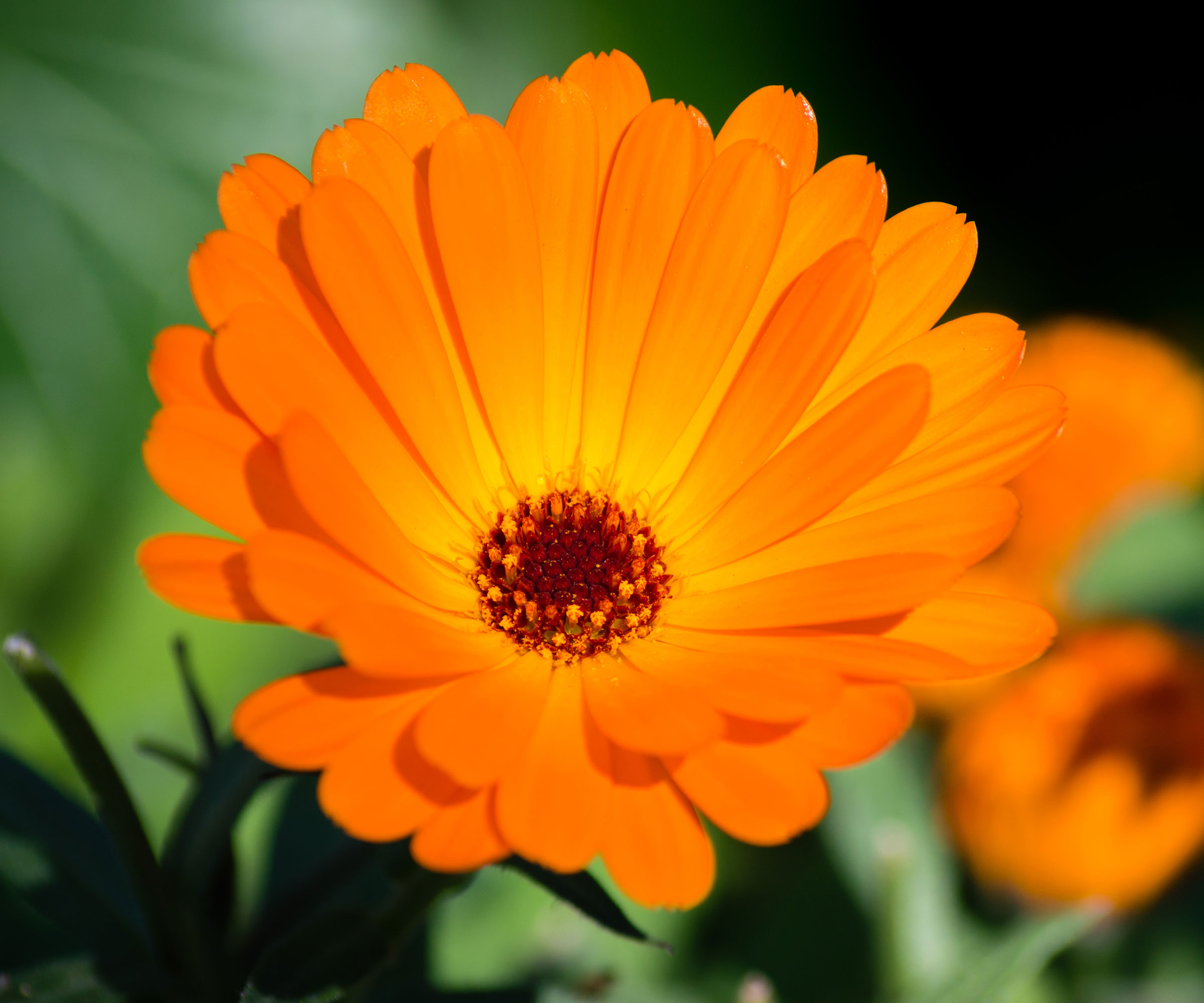
We already know that marigolds keep bugs away thanks to their pungent scent. Both French and American marigolds possess a strong spicy scent and tightly ruffled red, yellow and orange blooms that also keep snakes well away.
‘These bright, lovely flowers look innocent, but marigolds’ roots grow deeply and aggressively,’ says the team at Mo Plants. ‘These sturdy roots are the snake repellents. They emit a strong odor that repels snakes, gophers, and moles. They can also reach wherever a snake might be burrowing and hiding in, so the smell will reach deep into the soil.’
A tender annual these readily available plants are happiest in sun and will thrive during the warmer months across US hardiness zone two to zone 11. You can grow marigolds from seed, and keep them producing new flowers – and repelling snakes – for longer by deadheading regularly. Marigolds are great to plant to attract butterflies, too.
2. Lavender
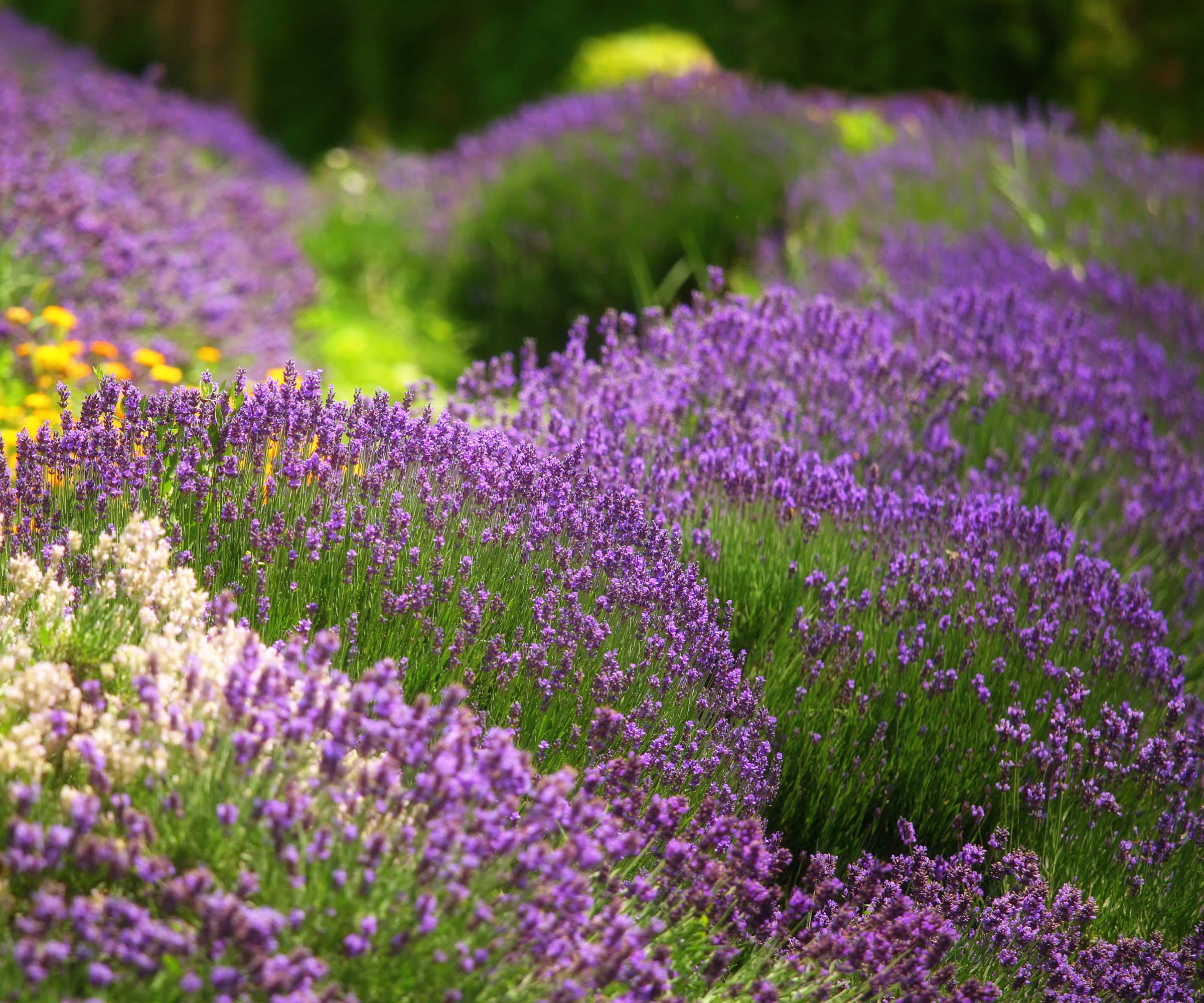
As with other plants in a fragrant garden, lavender has a strong scent that will disturb the sensitive sense of smells of snakes and repel them.
'Lavender has a pungent smell snakes don’t like and would rather avoid it than cross through it to enter your garden. This makes them a good anti-snake fence,' says Nicole Carpenter, pest control expert and President of Black Pest Prevention.
You can grow lavender in US hardiness zones five to 10. Many choose to grow lavender in pots because it's one of the best container plants for pollinators and can bring wanted critters to your yard while keeping snakes away.

Nicole Carpenter started working at Black Pest Prevention when she was in high school. She continued working there while attending N.C. State University and is now the President. She advises on pest control in backyards and helps with pest control in Charlotte and serves both North and South Carolina.
3. Rosemary
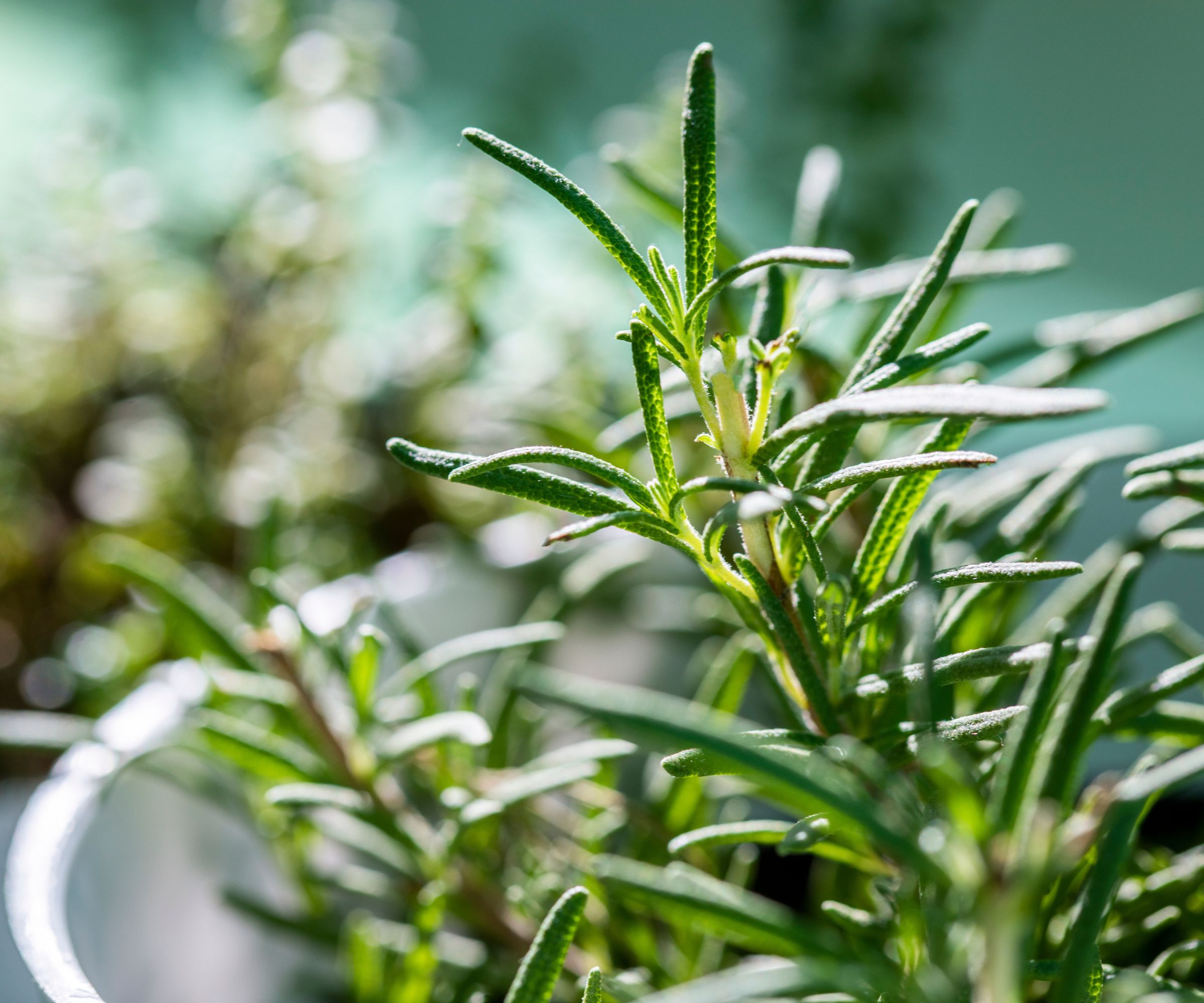
Arguably the best part of having a herb garden is the variety of fragrances it brings to your yard. Among those fragrances is rosemary - a staple herb to grow in US hardiness zones eight to zone nine.
The strong scent of rosemary can help deter snakes, although it can be a good idea to grow rosemary moderately or in pots to avoid encouraging snakes with their foliage.
'Rosemary has a dense foliage which can serve as a shelter for snakes,' warns Nicole.
4. Alliums
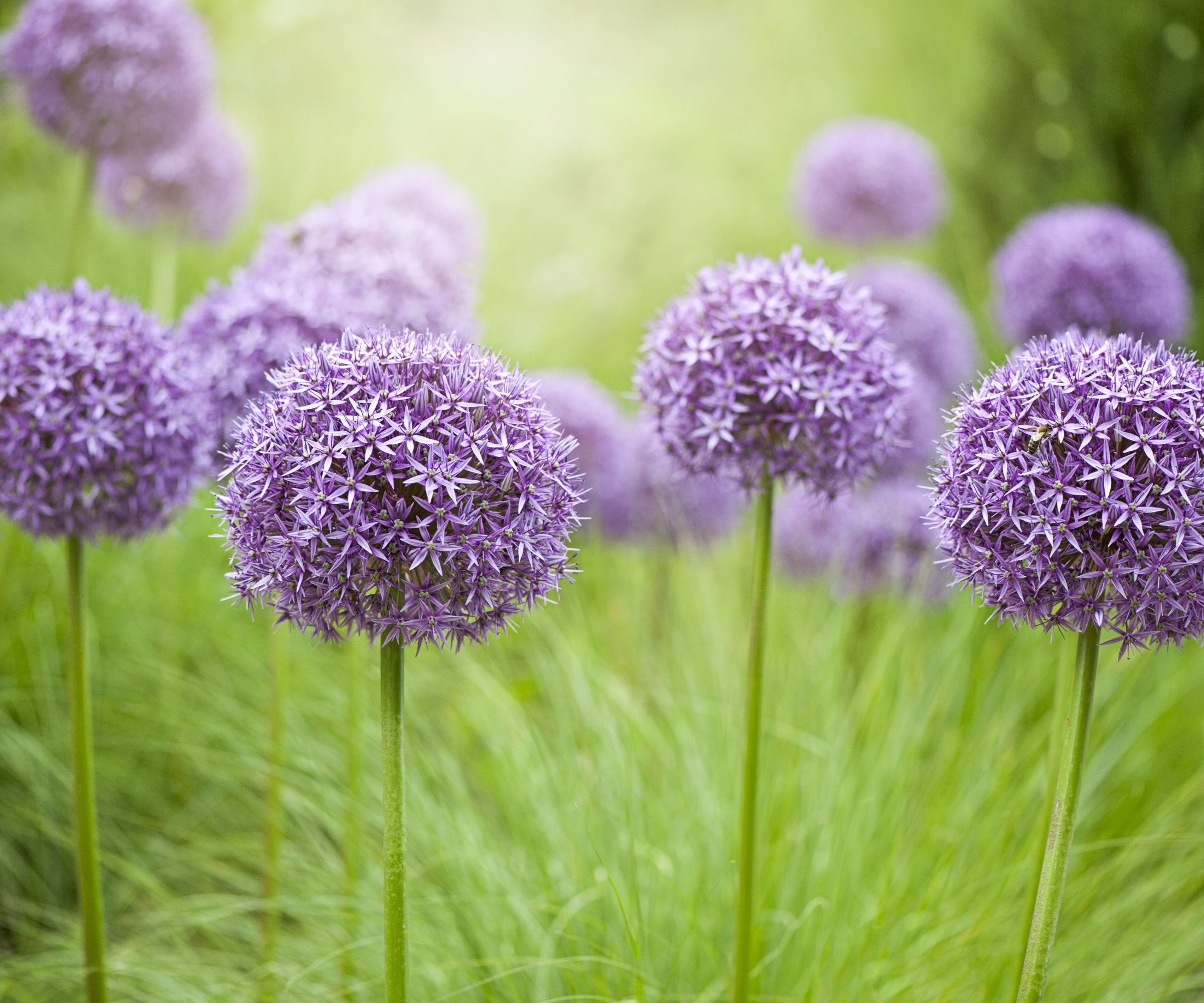
Thanks to their high sulfonic content and pungent smell, alliums are very effective at keeping snakes at bay. 'Having a strong scent, plants like garlic, onions and chives can deter snakes and other pests,' notes Nicole.
Fortunately, they are striking flowers too, with the best varieties of allium bulbs producing lavender and deep purple pom-pom blooms perched atop of straight stems to bring drama and color to the late spring yard. They can be generally be grown in US hardiness zone three to zone nine.
Scatter them in the flower border, amongst ground cover plants or grow in shallow dish shaped planters for an eye-catching display. One word of warning, though, the wide strappy leaves are less than lovely and the perfect spot for hiding slugs and snails, so do keep them away from precious and delicate salad leaves and bedding plants. Or be prepared to get rid of slugs and get rid of snails regularly.
5. Lemongrass

Lucky enough to live in US hardiness zone nine to zone 11 or warmer climes? Then you can grow lemongrass, and add it to your list of wasp repellent plants, too.
Lemongrass originates from the sunshine, humidity and warmth of Sri Lanka and southern India, and has a reviving citrus fragrance that is guaranteed to keep snakes well away. 'As any other plant that emits a strong scent, lemongrass can disorient snakes and make it difficult for them to hunt,' says Nicole.
In these zones you can leave lemongrass in the ground all year round – just adding a little mulch for protection in zone 9.
If you live in zone 8 or below, and you are still keen to give this plant a go, then you will have to lift and store the plant indoors over winter
6. Cactus
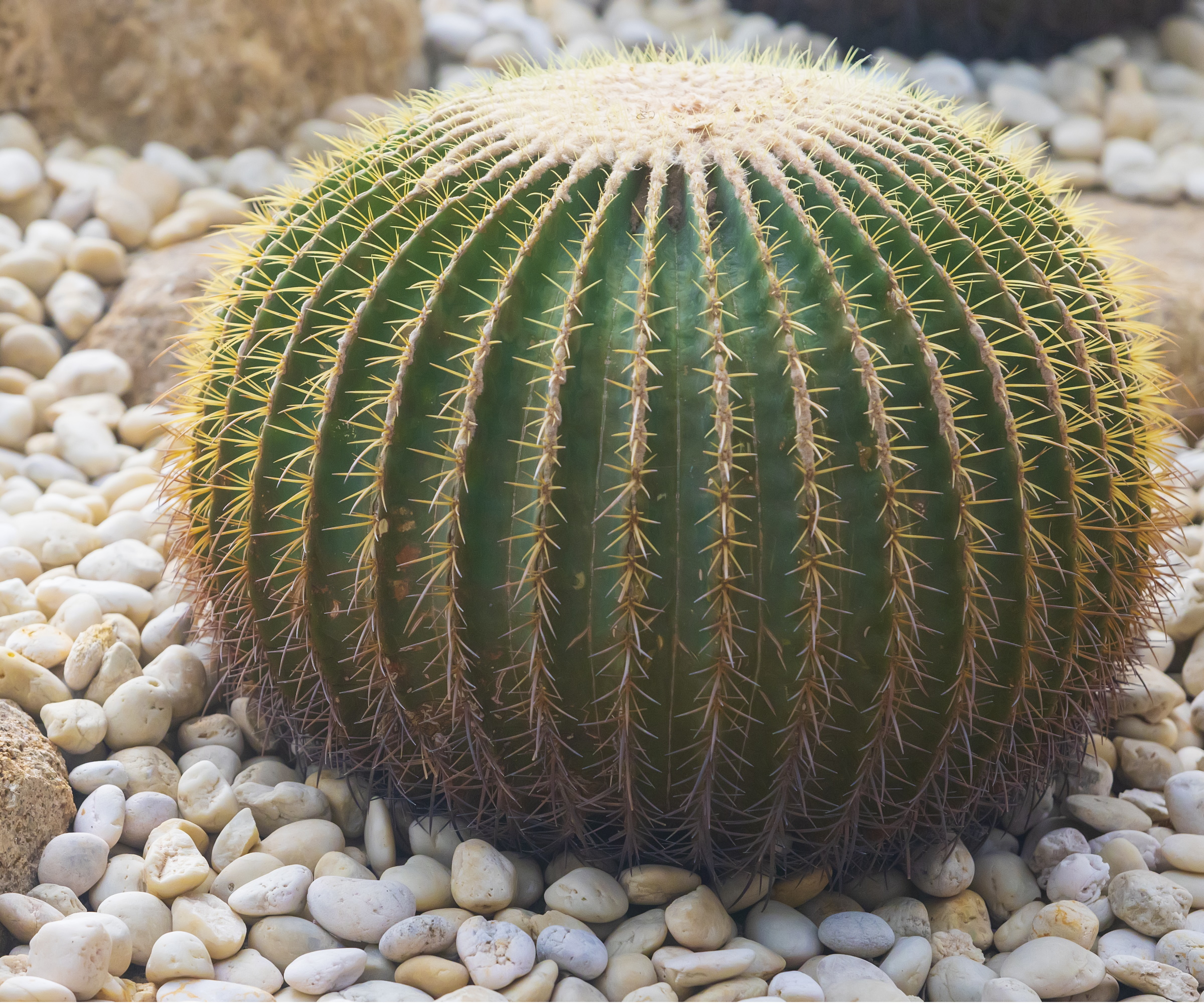
The obvious choice for a spikey plant to deter snakes is a cactus. There are a wide range of cactus varieties to choose from, and each will grow in different US hardiness zones - including some more cold-tolerant varieties.
You can landscape with succulents and caci to create a snake-repellent border. Alternatively, you can use these plants with sharp foliage to protect other plants in your yard where snakes may choose to hide.
Not only does their thorny surface deter snakes, but the height of cacti often makes it difficult for snakes to move past.
7. Mugwort
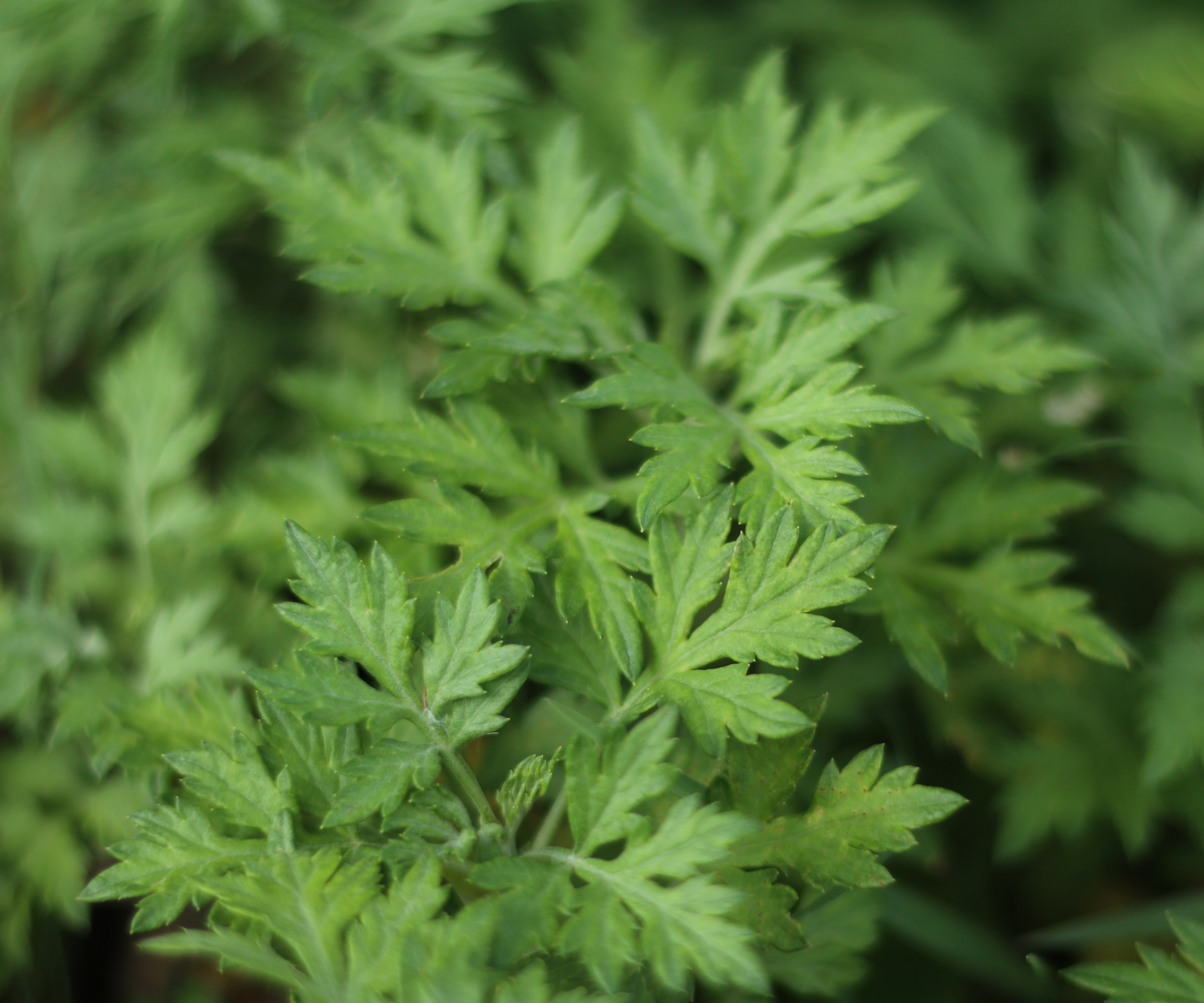
The charm of mugwort, or wormwood, may appear to lie in its fine silver-green, feathery foliage but did you know that snakes can’t abide its astringent scent?
'In addition to its bitter scent, mugwort can affect snakes indirectly by reducing the number of food sources in your outdoor area and making it a less attractive area for snakes,' notes Nicole.
Easy and quick to grow in a sunny, well-draining spot in US hardiness zone four to zone nine, it’s perfect for surrounding your deck or porch with to keep these unwanted visitors well away.
Reaching heights of around two feet (60cm) and with a spread of three feet (90cm) this hardy perennial forms attractive textured mounds. It can lose leaves over winter during particularly cold spells but will shoot again the following spring.
Parts of the plant have been used to create the liquor Absinthe but is more commonly known for treating various digestive problems.
8. Mother-In-Law's Tongue
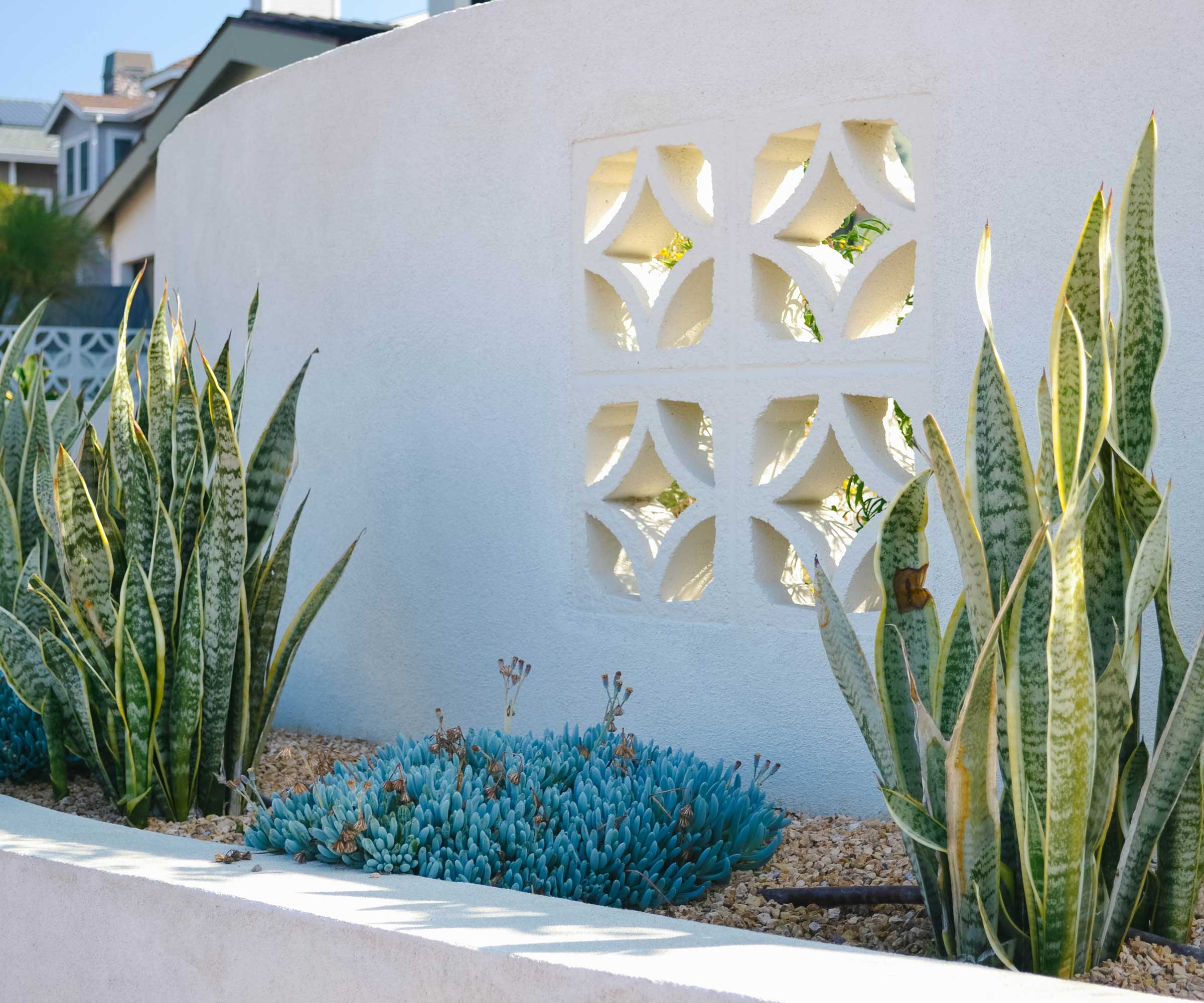
Also called sansevieria or ‘snake plant’, it’s the sight of this plant’s tall and twisting sword-like leaves that snakes find off-putting. Whether it’s because they find the sight threatening in some way or due to the sharp leaf edges, these tough, perennial plants will thrive outdoors in warm climates.
Preferring temperatures of 70°F and above, they will tolerate slightly cooler conditions but no lower than 55°F, so are perfect for growing in US hardiness zones 10-12.
Place in a bright spot but do avoid strong, direct sun as this can scorch the leaves. They are not particularly fussy with soil either but do dislike sitting in wet, boggy ground as this leads to root rot.
9. Holly
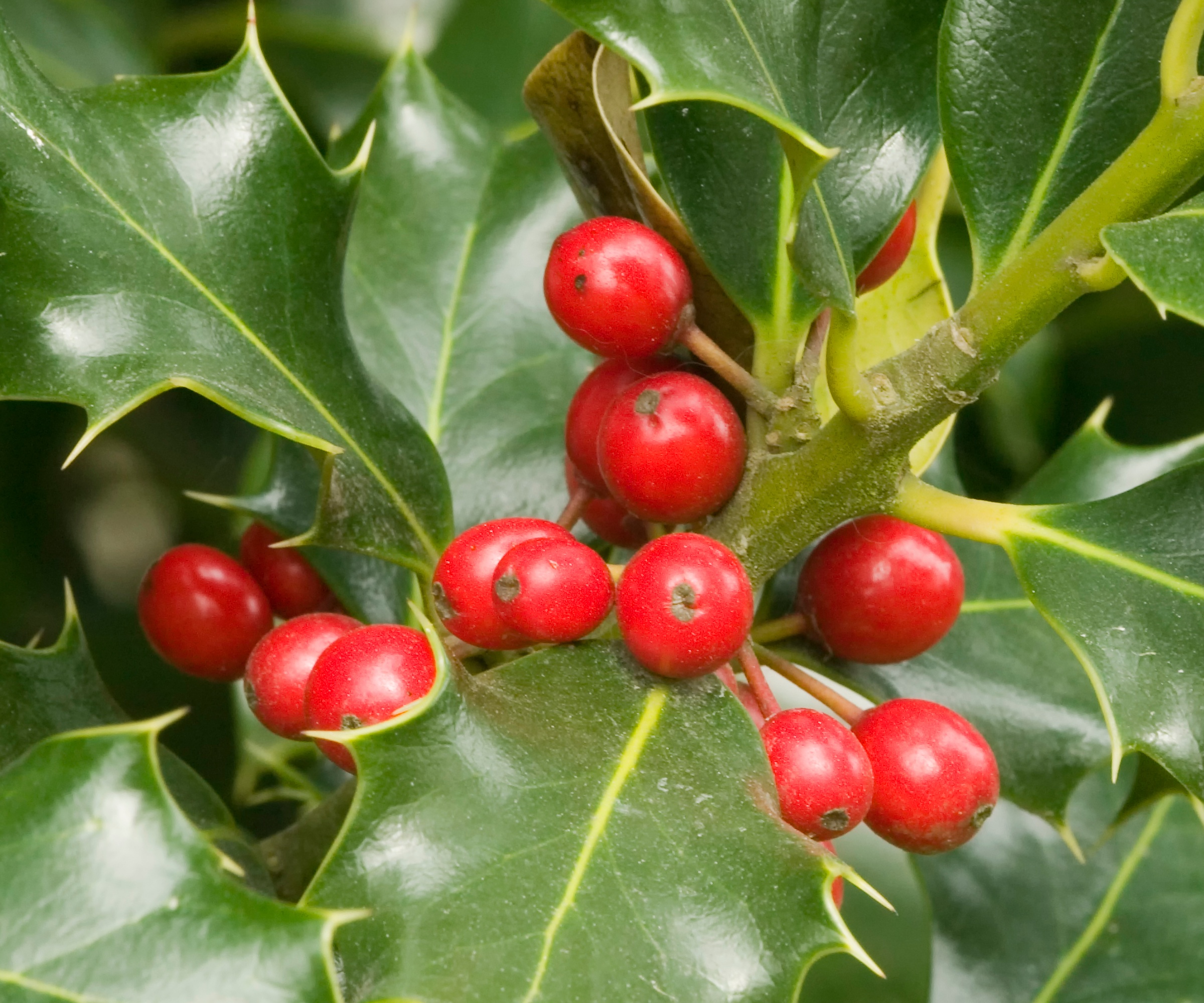
Just as when you are trying to get rid of slugs, think of ways to make the ground uncomfortable for snakes to slither over – this can include plants.
The most obvious of these snake-repellent plants is holly. You show grow holly low to the ground to deter snakes, but you can also clip mature bushes once a month and scatter the spiky leaves around the areas that snakes are frequenting in your yard.
'Holly tree also has a strong smell that can potentially deter snakes,' notes Nicole.
You can grow holly is US hardiness zone five to zone nine.
10. Pink Agapanthus
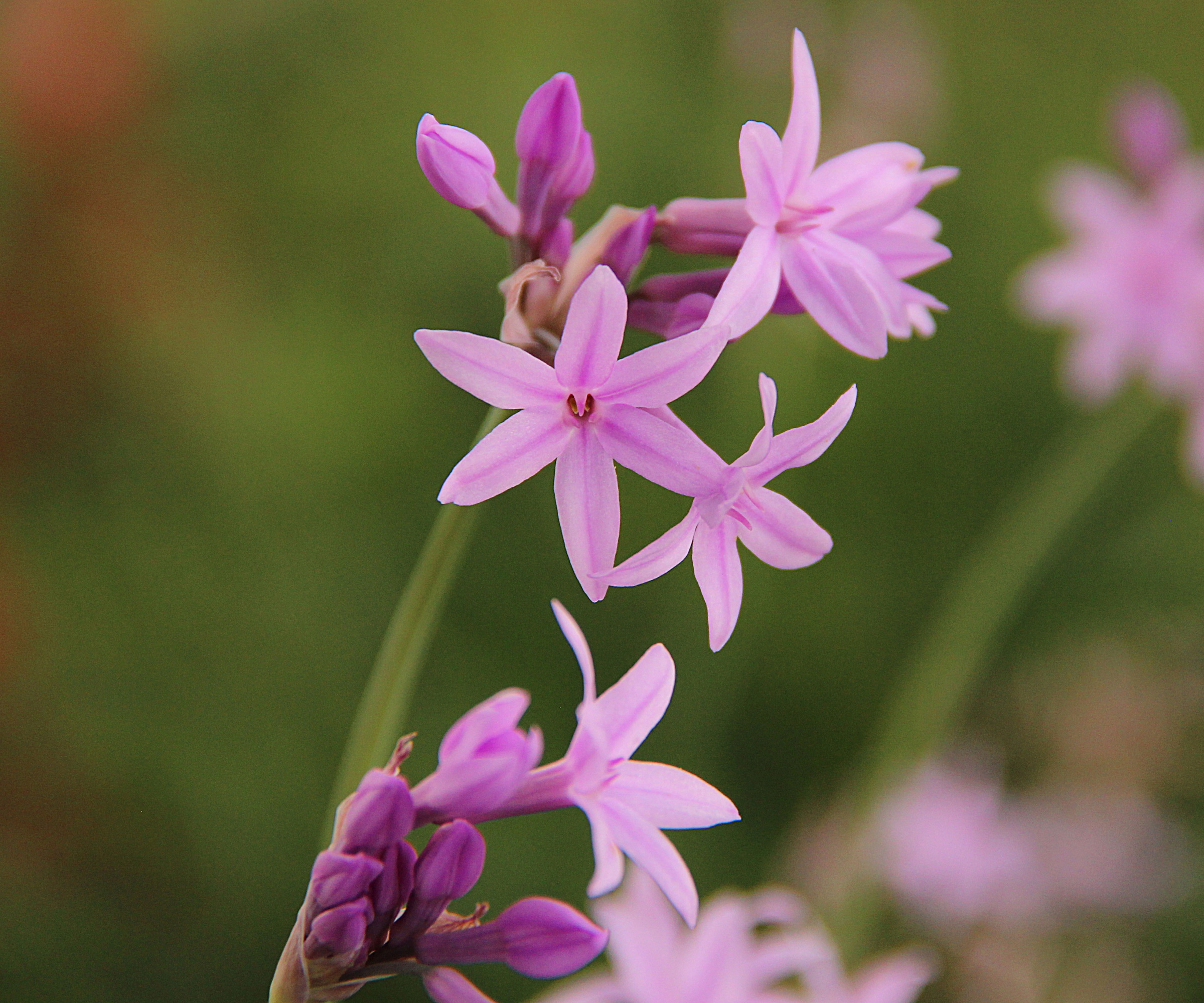
A member of the onion family, agapanthus is a stately plant with fountains of pink trumpet-like flowers that look stunning in spring and early summer. Thanks to its strong aroma, it will also keep snakes at bay.
A fast growing and clump forming perennial, it can reach up to three feet tall (91cm) and will thrive in US hardiness zones seven to 10. Avoid placing in wet, waterlogged soil as this will cause the bulbs to rot.
11. Snakeroot Plants
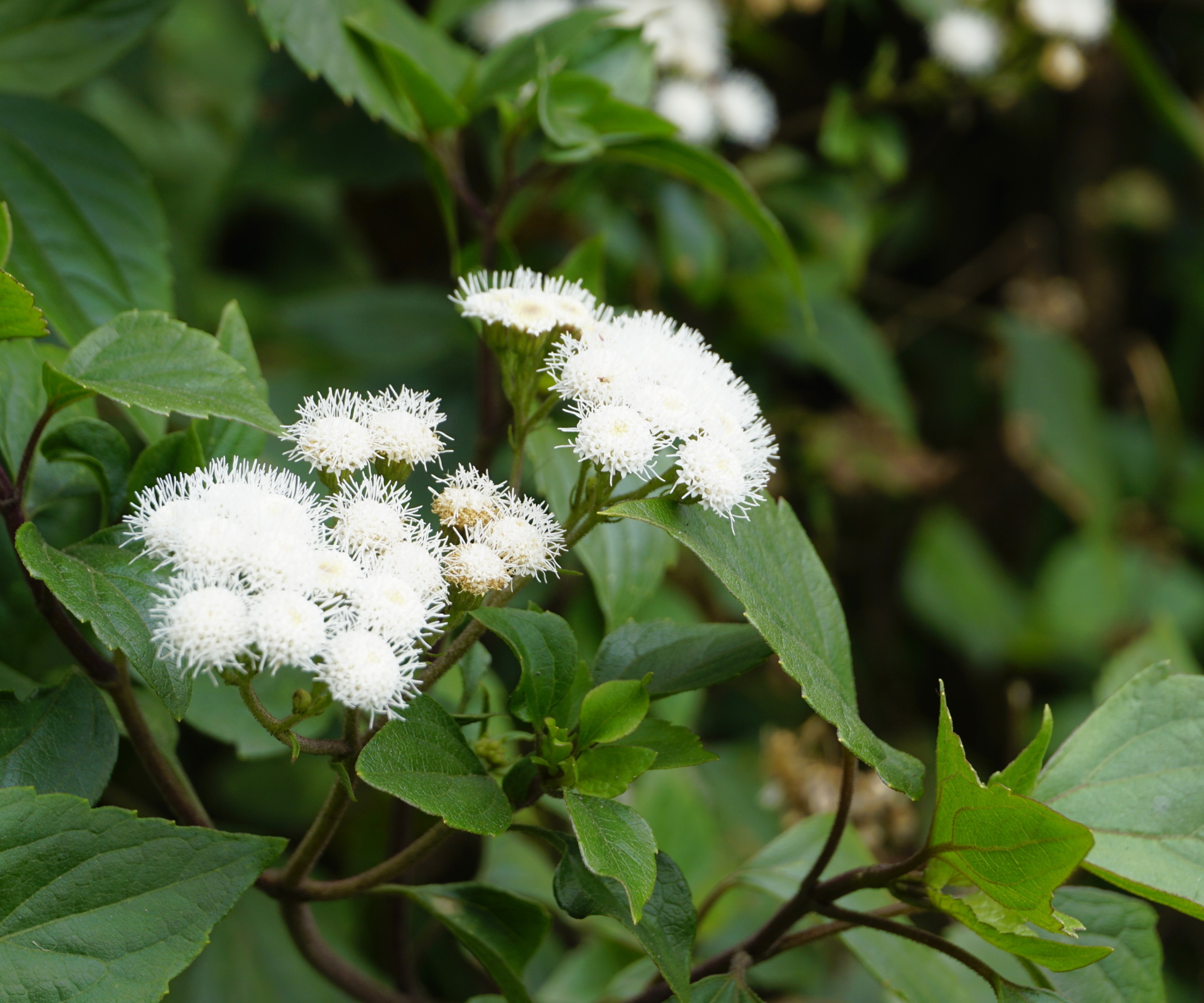
Often called the devil pepper, the bitter leaves and roots of this herbaceous perennial discourage snakes from coming near.
'Snakeroot contains harmful chemicals that can affect the heart, making the area around these plants less appealing to snakes,' says Nicole.
A word of caution: due chemicals in the plant – namely reserpine and tremetol – this tall plant with its small, white, long-lasting flowers is highly toxic to snakes but also harmful for animals, particularly horses and goats.
A native to north America it is commonly found in wood areas and produces coarse toothed leaves with pointed tips, not unlike stinging nettles. It grows best in US hardiness zone three to zone eight.
12. Yellow Alder
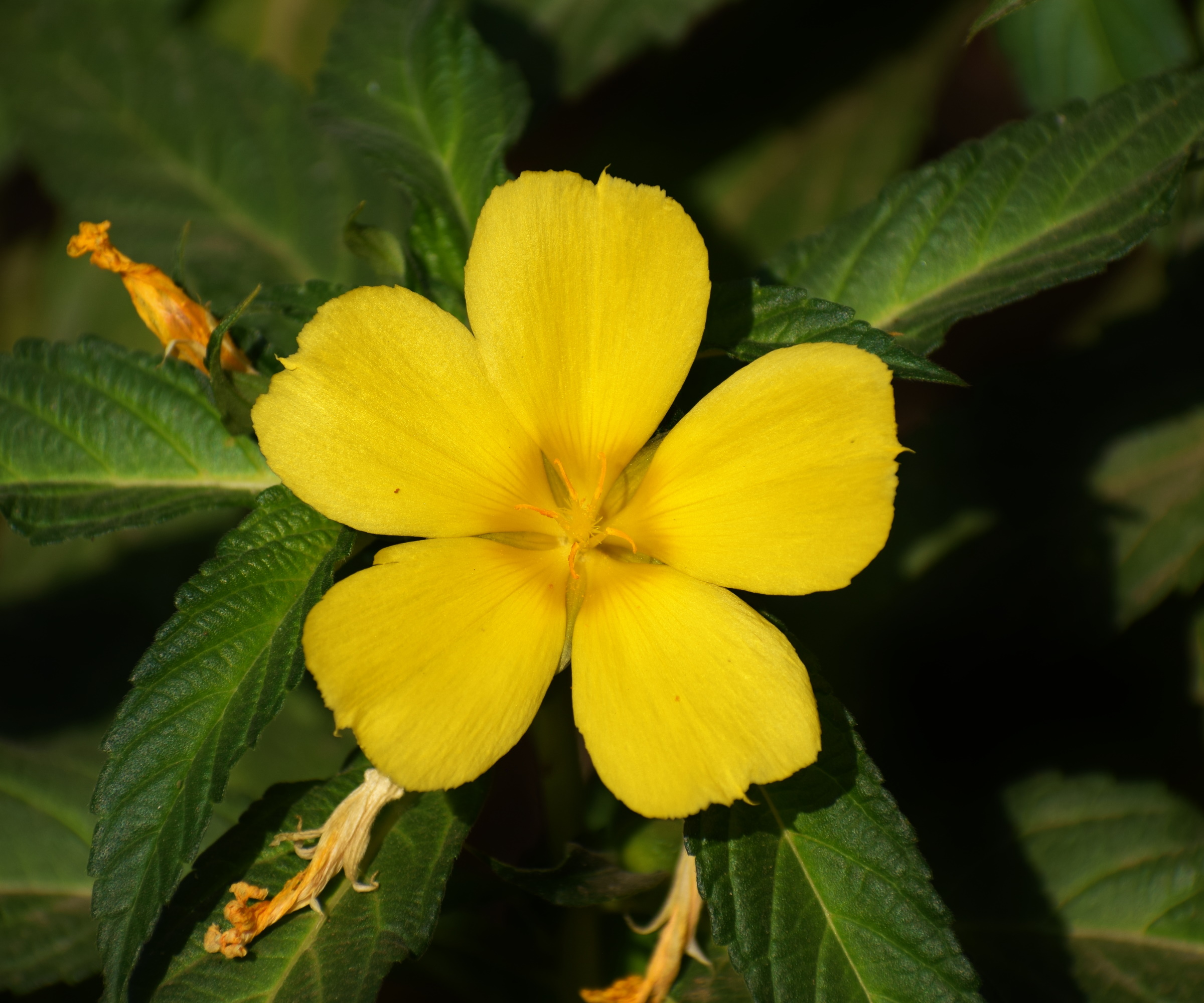
With its cheery buttercup-like flowers that bloom continually in US hardiness zone nine to zone 11, this low-growing shrub is great for ground cover and deterring snakes.
'Yellow alder can be a good natural pest repellent and your garden can benefit a lot from it,' says Nicole. 'It can affect snakes indirectly by repelling other pests and rodents snakes feed on,' she adds.
Preferring full sun or partial shade, this small shrub also has attractive oval shaped foliage with deeply serrated edges.
Happy in rich, moist yet well-draining soil, it can grow rapidly and spread freely and become invasive if left unchecked. The prolific number of blooms are attractive to butterflies.
13. Basil
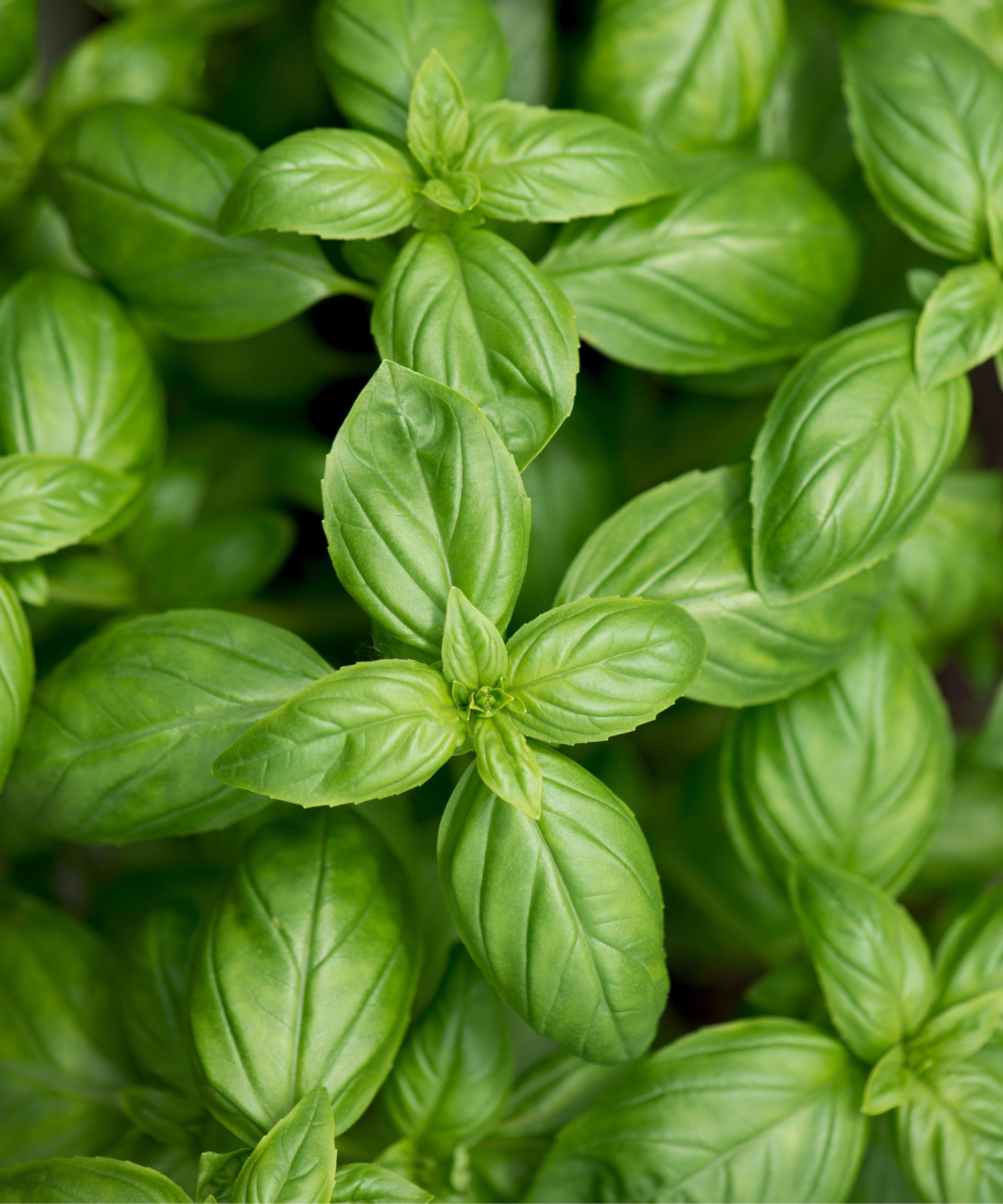
Best grown from seed at regular intervals throughout spring and summer, this tender annual herb has a strong smell that we find inviting, yet snakes cannot stand.
You can grow basil from seed, indoors and out. It requires constant heat to grow and dislikes sitting in wet compost, where if left it will quickly rot. The soft and tasty leaves also scorch very easily so make sure your crop is positioned out of direct sun.
Harvest individual leaves by picking them off, rather snipping several plants with scissors, as this will promote fresh, new growth. And learn how to prune basil at the right time to prolong its life.
14. Eucalyptus
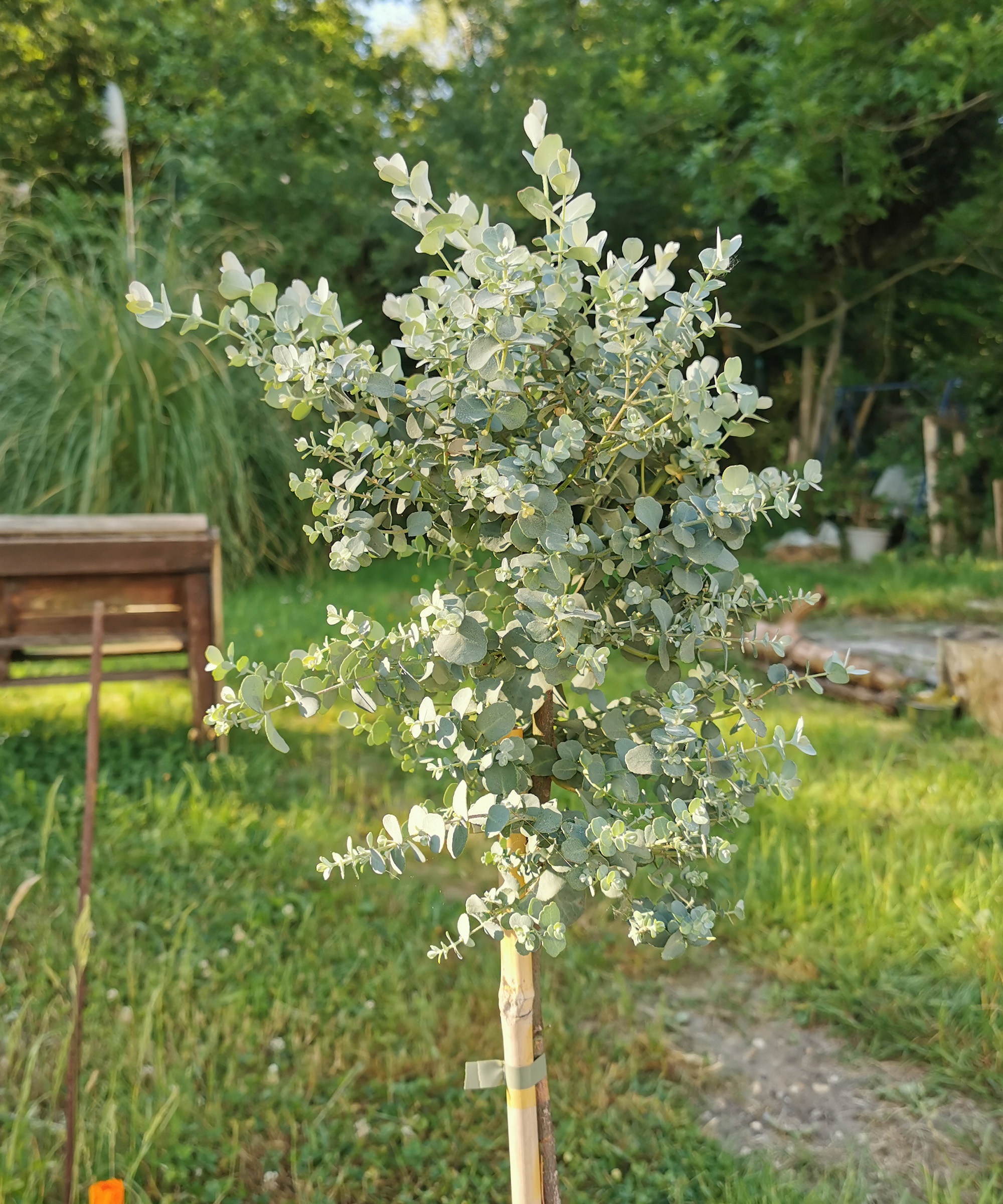
If you're looking for trees for small gardens that will keep snakes away, consider a fragrant eucalyptus tree.
'Eucalyptus emits a strong smell year-round which makes it a long-lasting solution compared to other plants with a strong scent like marigolds or lavender,' notes Nicole.
It's strong scent is why many people also use eucalyptus to keep insects out of the house.
It grows best in US hardiness zone eight to zone 11 and does well in pots, making it a good snake repellent in container gardens.
15. Daffodils
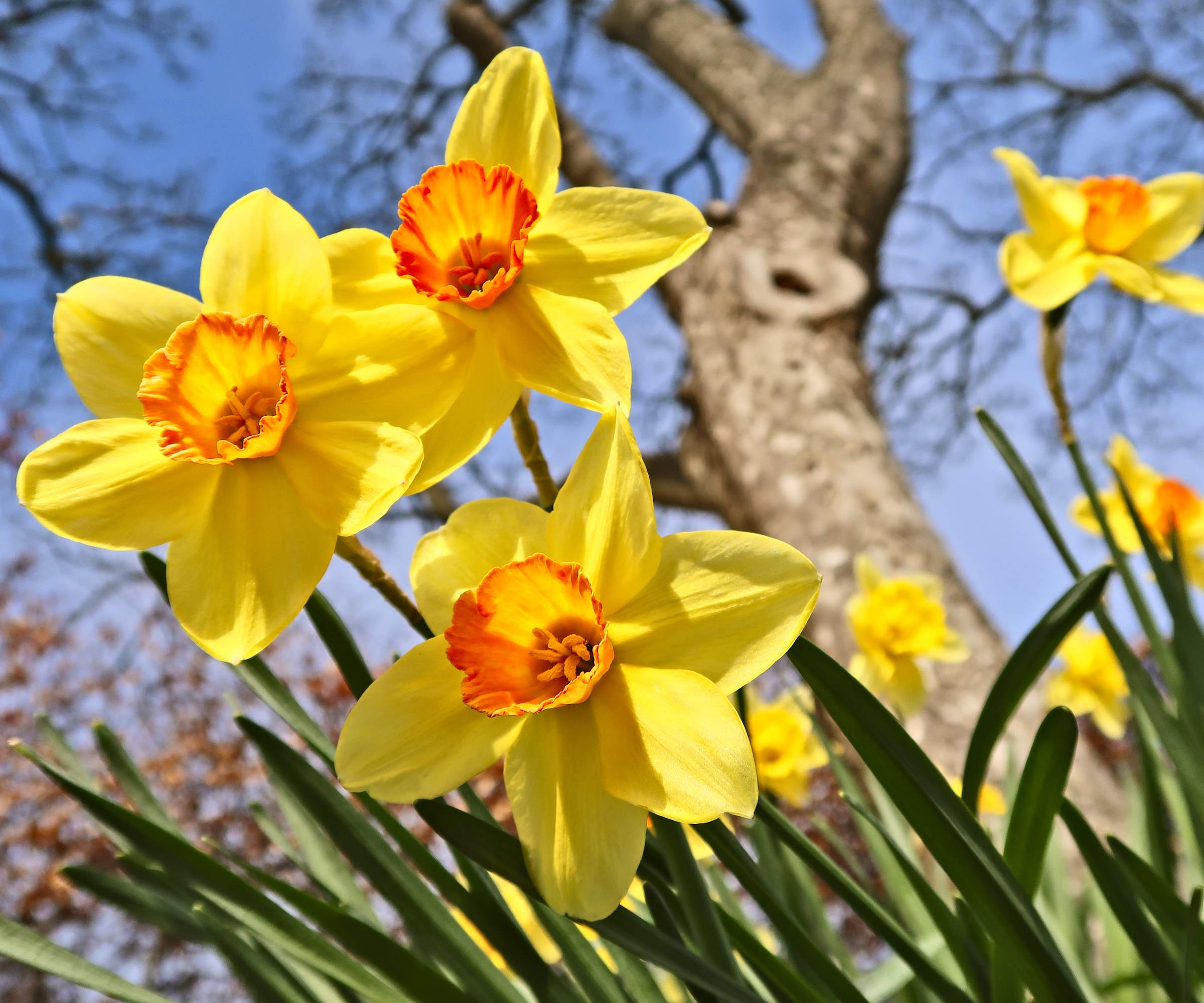
A springtime favorite, daffodils have a scent that can keep different creatures out of your yard. When it comes to repelling snakes, experts note daffodils do so indirectly.
'Narcissus varieties do not directly repel snakes. What they do is repel rodents snakes feed on. The fewer food sources in your yard, the lower the likelihood snakes want to be there,' says Nicole.
You can plant daffodils in US hardiness zone three to zone eight in a nice sunny position. Incorporate them into borders to create a rodent and snake repellent barrier.
Grow snake repellent plants in your yard
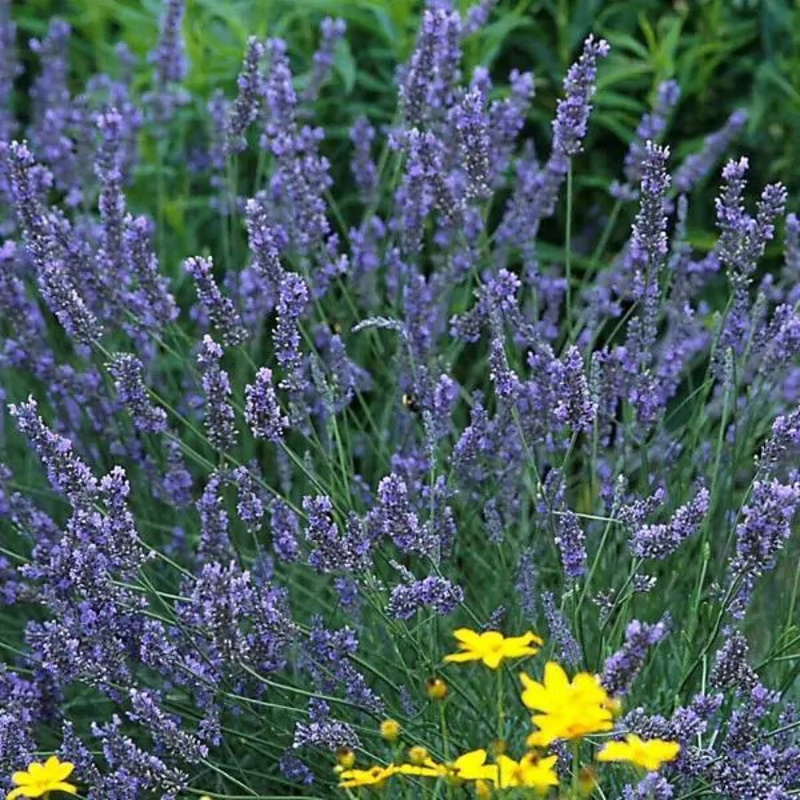
This variety of lavender is highly fragrant, effectively repelling snakes and other pests from your yard
FAQs
How do I snake-proof my yard?
Alongside filling your borders and pots with snake repellent plants, cutting back the lower limbs of shrubs, trimming any long grass and clearing up piles of leaves, logs, or brush will also help reduce cover and their likely hiding places.
Fill in any existing holes or burrows with firmly packed soil and reduce moist areas or puddles, as these are particularly attractive to snakes. Free ranging pets are also a great way to deter snakes as their frequent wanderings can put these reptiles off from taking up residence.
You should also avoid having standing water in your yard and try using this ultrasonic device from Amazon to keep snakes away.
There are a range of plants that you can grow in your backyard to repel snakes. Strong scents will discourage these unwanted reptiles from entering your garden. If you're interested in welcoming other critters to your yard, you might be inspired by our expert list to wildlife garden ideas.
Sign up to the Homes & Gardens newsletter
Design expertise in your inbox – from inspiring decorating ideas and beautiful celebrity homes to practical gardening advice and shopping round-ups.

Journalist Jill Morgan has spent over 20 years writing and editing gardening, interior and property features. Titles she has worked on include The English Home, House Beautiful, Ideal Home, Houzz and Modern Gardens and she writes regularly for H&G as a Contributing Editor. Whilst she is a dab hand at renovation projects and DIY, she is happiest when out digging in the garden or planning a new border.
- Tenielle JordisonNews Writer (Gardens)
-
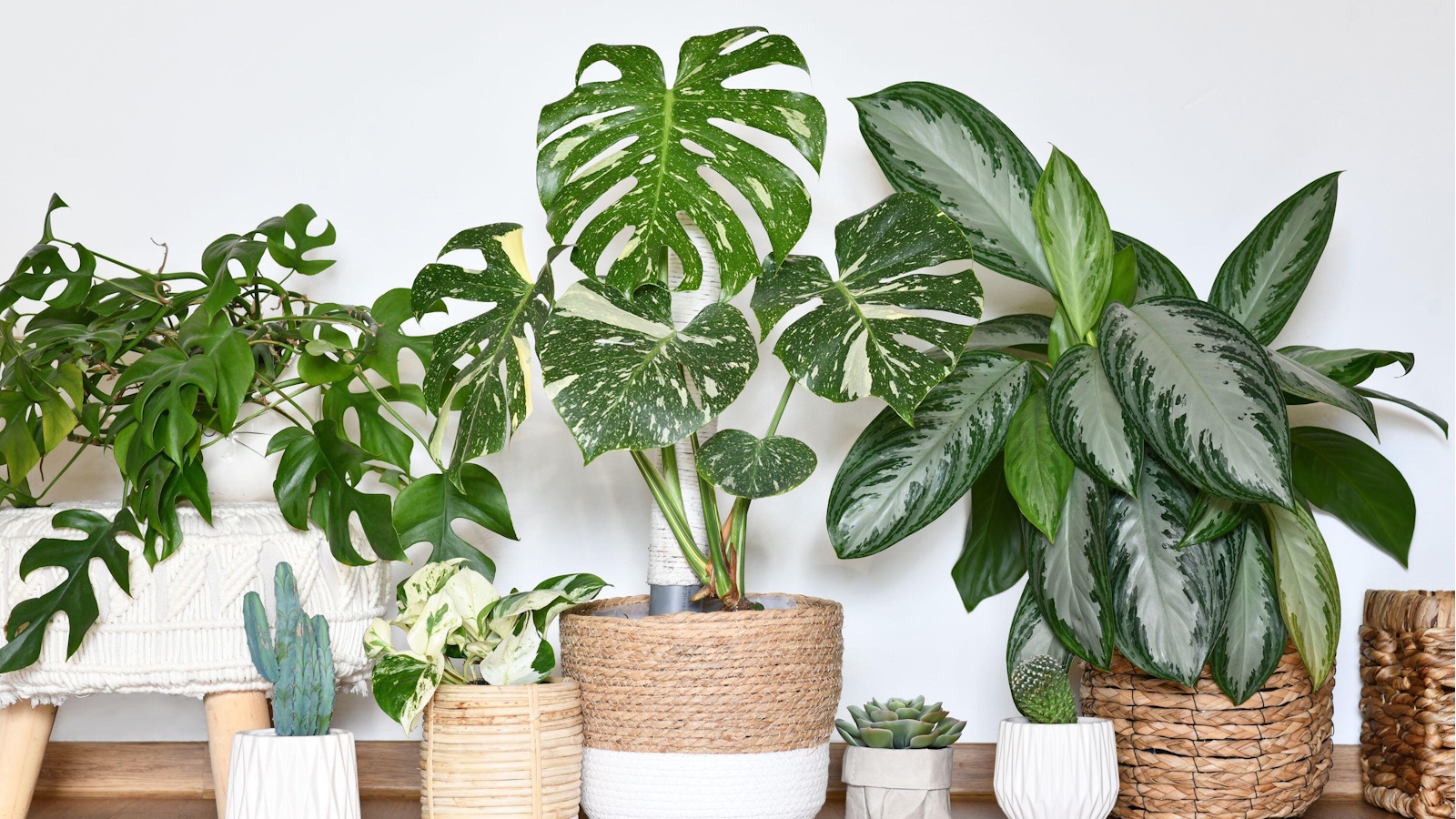 9 longest-living houseplants – expert recommendations and tips for species that can live over 10 years
9 longest-living houseplants – expert recommendations and tips for species that can live over 10 yearsInvest in these houseplants now for years of luscious foliage in your home
By Tenielle Jordison Published
-
 Kris Jenner's 'organic modern' living room champions the most talked-about trend of 2025 – it's the new way to do luxe-minimalism
Kris Jenner's 'organic modern' living room champions the most talked-about trend of 2025 – it's the new way to do luxe-minimalismSimple silhouettes, organic textures, and industrial nuances infuse functional pieces with elegance to create an effortlessly chic and easy-to-live-with living space
By Jennifer Ebert Published
